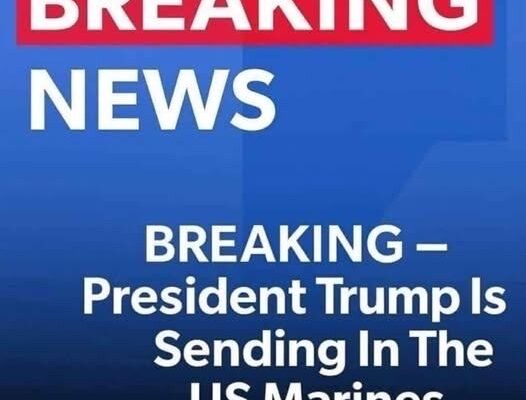Marines Deployed to Florida for ICE Support Sparks Fierce Immigration Debate
Immigration policy has once again taken center stage in American politics after former President Donald Trump announced the deployment of 200 U.S. Marines to Florida in support of Immigration and Customs Enforcement (ICE). While military leaders insist the mission is strictly administrative, the move has triggered an immediate firestorm over its symbolism, legality, and long-term implications.
What the Marines Will Do
According to Pentagon briefings, the Marines will not carry out arrests, raids, or law enforcement. Instead, they will assist inside ICE detention facilities with paperwork, supply management, and transportation logistics. Officials frame the deployment as a way to relieve overburdened ICE staff so agents can focus on enforcement operations.
On paper, the scope is narrow. But the optics of uniformed Marines working in immigration centers are anything but.
Critics Sound the Alarm
Civil rights groups warn that the deployment risks intimidating immigrant communities already wary of seeking asylum, legal aid, or even medical help. Lawmakers caution against “mission creep,” where a logistical role could evolve into direct enforcement.
“The presence of Marines in detention centers blurs a line that must remain firm,” one advocacy leader said. “It sends a chilling message that immigration is being militarized.”
Several members of Congress are demanding clarity on how long the deployment will last and what safeguards will prevent military overreach.
Supporters Defend the Move
Backers of Trump’s decision argue it’s a practical solution to a chronic staffing crisis inside ICE. Detention centers have faced overcrowding and administrative backlogs for years. Supporters say assigning Marines to handle background tasks demonstrates Trump’s willingness to “use every tool” to strengthen border security.
For Trump’s base, the move underscores his image as a decisive leader confronting what they see as Democrats’ failures on immigration.
A Larger Question: The Military’s Role at Home
Traditionally, the U.S. military’s role inside the country is tightly limited—usually reserved for disaster relief or infrastructure emergencies. Tying Marines to immigration detention, analysts say, sets a new precedent that could erode democratic norms.
“The real issue isn’t what the Marines are doing today,” one military scholar noted. “It’s what this normalizes for tomorrow.”
What Comes Next
The Marines are already rotating into Florida facilities, and ICE says the support will expand to Louisiana and Texas if needed. With immigration already one of the nation’s most polarizing issues, the deployment has turned a logistical fix into a flashpoint.
For some, it’s a smart use of resources. For others, it’s a dangerous blurring of military and civilian lines.
Either way, the presence of Marines in detention centers ensures the debate over immigration and the military’s domestic role is far from over.



